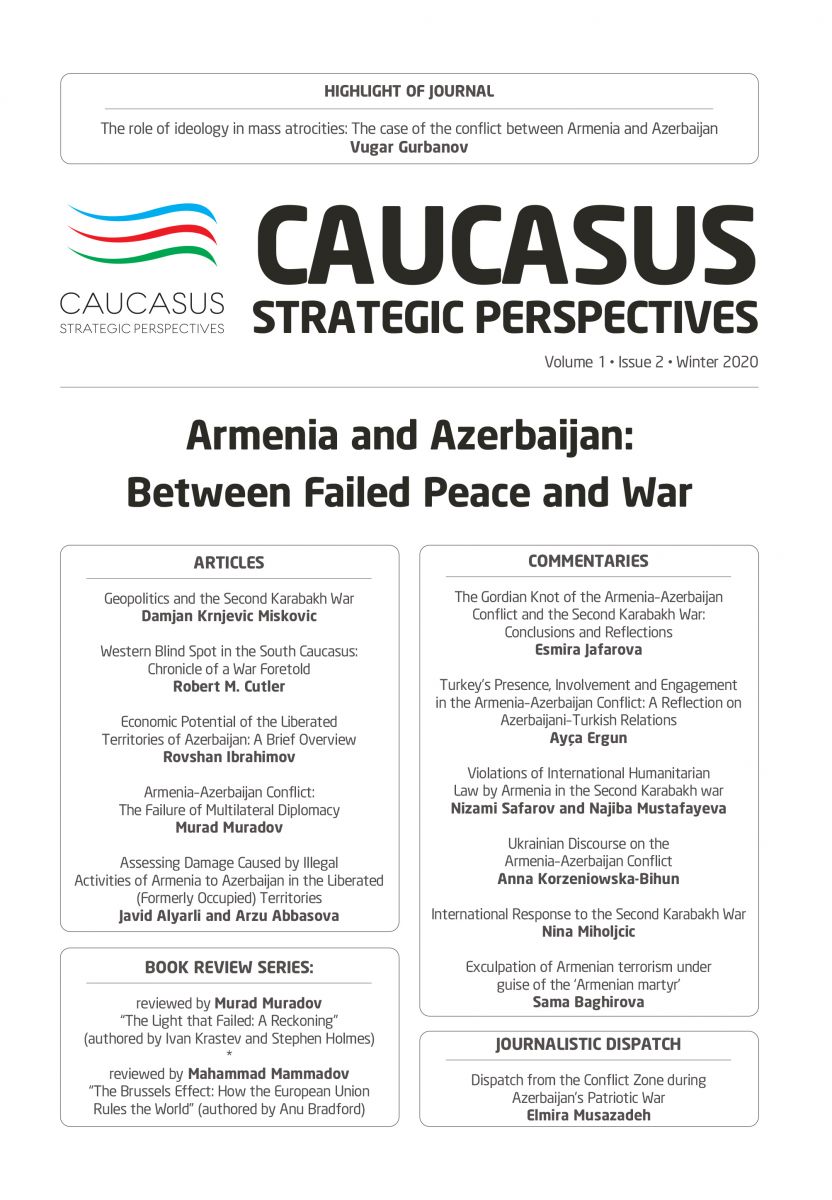Western Blind Spot in the South Caucasus: Chronicle of a War Foretold
The Second Karabakh War showed how much it is the case that European and American diplomacy has declined to acknowledge new developments in the South Caucasus over the last quarter century. The European and American information media also failed to inform their readerships about the facts of the conflict and behind the conflict. This failure extends generally also to their experts and policy communities. The article analyses three of these failures: (1) the facile repetition that the conflict is based in religion, (2) the significance of Armenian prime minister Pashinyan’s rejection of the Madrid Principles, and (3) the protestations that there was “no military solution.” The inspection and criticism of the mass and specialized media must continue, in order to expose errors and old ways of thinking that harm the everyday lives and the futures of the peoples of the region. The Armenian leadership and political class, including the diaspora, must likewise cease to propagate unreal characterizations of the situation. These, sometimes willful, errors create false images of the realities on the ground, from which only mistaken actions can proceed.
Latest news
- 12/27/2024 Call for Submissions-Caucasus Strategic Perspectives, Volume 6, Issue 1, Summer 2025 668 views
Popular articles
- 07/18/2022 The Russia–Ukraine War: Perspective of Azerbaijan 4325 views
- 10/14/2020 The Non-Aligned Movement: In Pursuit of Validity and Relevance in the Contemporary Global Order 3307 views
- 10/14/2020 Vicious Circle of the South Caucasus: Intra-Regional Conflicts and Geopolitical Heterogeneity 3291 views
- 10/14/2020 Relevance of Non-Alignment for Azerbaijan’s Foreign and Security Policy 3020 views





